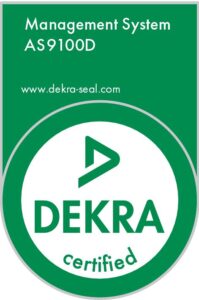If you work with industrial fasteners, you’ve probably heard of this never-ending debate: titanium bolts vs. titanium screws; which is ideal for a project? While they’re both made of the same material and will provide superior fastening quality, titanium bolts and screws serve very different purposes.
So, which is best for your current project? Keep reading as we settle the titanium bolts vs. titanium screws debate once and for all.
Titanium Bolts vs. Titanium Screws:
When to Use Each To the casual observer, bolts and nuts function in the same way. Both share a similar structure and will even deliver a flush, clean aesthetic when you need a low-profile fastening solution, especially if you receive titanium precision parts from a custom fastener manufacturer.
But before you start calling titanium fastener manufacturers to place a supply order, you must familiarize yourself with the project applications to determine which fastener will suit the job. Here are the various ways where ordering screws from fastener manufacturing companies will make more sense than ordering bolts, and the other way around.
When to use Titanium Screws
Titanium screws are versatile and will work best when the task allows for self-tapping, although you may drill a pilot hole if you feel the need for it. That makes screws the ideal choice if you can’t access the other side of the application. You only need one side to secure the two objects.
Screw manufacturers recommend them if you need a sleek and subtle finish. They are often more aesthetically pleasing as you can easily countersink and sand them smooth. A fastener manufacturer will also point you towards titanium screws when you demand a fastener that’s easy to install. You can install and tighten screws using a single screwdriver or power tool, unlike most bolts.
Screws are not as hardy as bolts, so fastener suppliers recommend them for lighter applications like quick repairs or DIY projects. They work best in materials such as drywall, plywood, deck planks, and sheet metal.
When to use Titanium Bolts
Bolts and nuts suppliers will likely urge you to order titanium bolts if you have heavy-duty applications. Titanium bolts and nuts can withstand immense stress and force, suitable for applications requiring
robust fastening solutions. That explains why titanium bolts are quite popular among manufacturing, automotive, construction, and aerospace fastener companies.
Unlike screws, bolts don’t taper to a point, so they are not self-tapping. You can only use bolts in objects with pre-drilled holes. Screws need the materials you seek to bind to be thick enough for the threads to bite into and secure. Bolts only need a nut to fasten on its threads and a washer to spread the load so they will secure the thinnest of objects.
Where aesthetics is not a primary concern, such as manufacturing, bolt suppliers will recommend using bolts. Because of their high performance, bolts are critical fasteners that secure dense materials like wood, metal, and concrete.
Titanium Bolts vs. Titanium Screws: Which is the Best Fastener for Your Project?
In the perpetual debate pitting titanium bolts vs. titanium screws, the best fastener will depend on the individual needs of your project. For instance, if you’re working on a DIY build with light materials like plywood that don’t require heavy-duty binding power, then a titanium screw will do just fine.
However, if you’re dealing with heavy materials requiring robust binding power (such as cement), titanium bolts are the way to go. Since each project is unique, you might need to contact a precision parts supplier like B&G Manufacturing. At B&G, we manufacture diverse titanium products, including safety fasteners, medical precision parts, and oil & gas industry fasteners. We also serve different markets, such as defense and aircraft fastener suppliers, stainless steel fastener suppliers, and energy fastener suppliers. Contact us today for all your titanium precision parts manufacturing needs


 Hatfield
Hatfield

